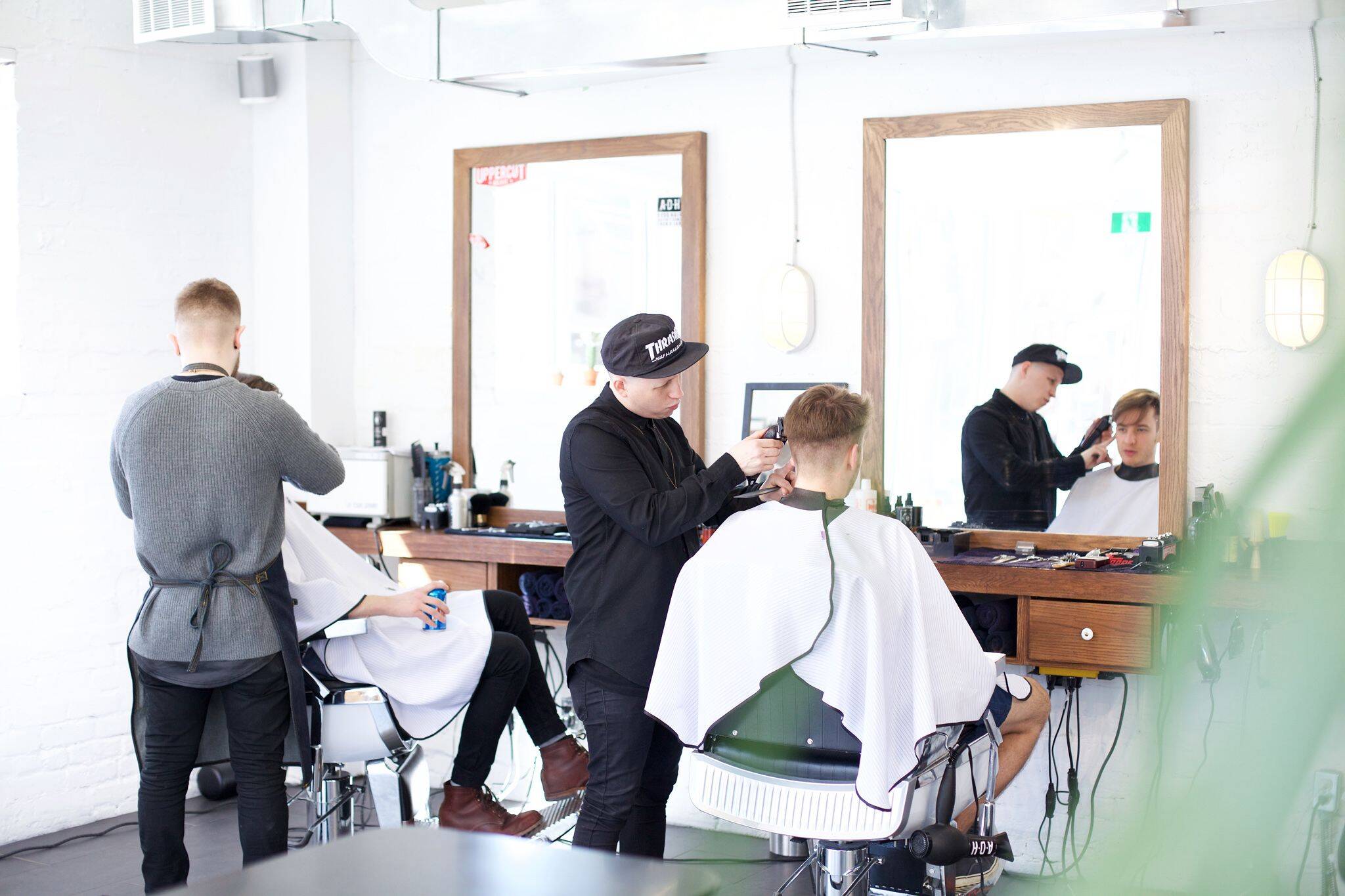
Toronto barbershops are just trying to get by while price increases loom
Barbershops aren't the only businesses struggling with inflation and rising costs in Toronto, but they are in a uniquely difficult position most others have not faced.
During the last two years with waves of lockdowns and limited capacity, personal care services like barbers, salons and manicurists faced the longest mandatory closures in the province - meaning they were not allowed to open for months on end.
Personal care services were one of the first industries to be completely shuttered, and one of the last to gradually reopen. All businesses in this industry lost months of revenue and some never reopened again.
And now that bookings are beginning to return to pre-2019 levels, barbershops in Toronto are just trying to get by.
"When we came out of [lockdowns], we decided to bump costs immediately," Peter Gosling of Glassbox Barbershop tells blogTO.
As he explains, Glassbox locations were closed for 12 months over the last two years, thus he had no other choice but to raise prices to make up for lost revenue and increasing rents, but also needed to pay his employees a decent wage.
When capacity limits were introduced, customers had to be spread out, meaning fewer services per day.
Nowadays, with prices increasing on virtually everything, Gosling says now is the time to pay more for your barber service as a potential recession looms.
"It's $1.25 a towel now, before it was $0.80, I'm trying to afford to run a business here. It's also hard as a business owner because I'm paying the markup for retail now, it's so hard. I'm not one to shy away from letting people know we've had internal struggles."
The price increase directly correlates with how much employees can earn, Gosling explains it pretty clearly.
Minimum wage is currently at $15.50 and most people expect their haircuts to be around $30. If a barber is making commission at 50 per cent that means they're earning less than minimum wage on each cut set at $30.
"We’re not trying to be facetious, it's not the 1930s anymore, you're not going to get a haircut for $5. I think it's a respectable thing to get paid a minimum wage, [barbers] have to be here before work, lunch and after work. It's not a 40-hour week for us," he said.
Cuts at Glassbox range from $30-$60 and from $40-$70 with a beard trim.
Raising prices has also been a constant issue for the Fade Room on Rogers Road, according to owner Claudio Ferreira.
"Practically, all our supplies we require in order to complete our services have increased by on average, between 10 per cent and 30 per cent," he said, while also noting increases on cleaning materials and hair-cutting tools.
Without any other option, Ferreira made the difficult decision to raise his prices after holding out for as long as possible, fully aware of the risk of lost clientele.
The last two years also played a major part in that, which he said were the most difficult ever experienced.
"Operating with unsustainable compensation, unpredictable shutdowns, and the additional costs for C-19 supplies such as plexiglass, masks, sanitizers etc. for when the barbershop could operate was unbearable. It has been really challenging to keep the business operating and maintain fair prices for our clients."
Now Fade Room's next battle is weathering the inflation storm and future economic downturn.
For Brian Hurson of the Nite Owl, with its original shop in the home of a restored 1940s barbershop on Lakeshore, the prices for services are pretty standard and he even covers the sales tax, but that might stop soon.
"All my costs have gone up dramatically, with such a razor-thin margin. I think we will have to charge the sales tax on the price as opposed to me paying it," he said.
But instead of staying bogged down with the everyday worries of running a barbershop in the country's most expensive city, Hurson focuses on keeping high standards and service levels.
He also hires and trains each barber himself, from scratch, having added two new Ukrainian barbers as apprentices once the war started.
"I actually pay benefits to the barbers, that was important for me to do. Obviously we the pandemic hit it was really to keep that payment but I did."
When speaking with each barber, they took the time to really emphasize how thankful and appreciative they are to their customers, promising that price costs are more about getting by than raking in profits.
Ferreria said his customers are "devoted" and that they understand a small price increase is going to happen.
In fact, both Gosling and Hurson said there hasn't been really any pushback about prices increases, though Gosling said now is the time to pay your barber like you would any other trained trades or skilled worker.
"We are starting to see numbers again that I would see in 2019, which is good, we had a great quarter but it's not like we went back to work [and] put prices up to make more money," he said.
Ryan Bolton
Latest Videos
Latest Videos
Join the conversation Load comments







